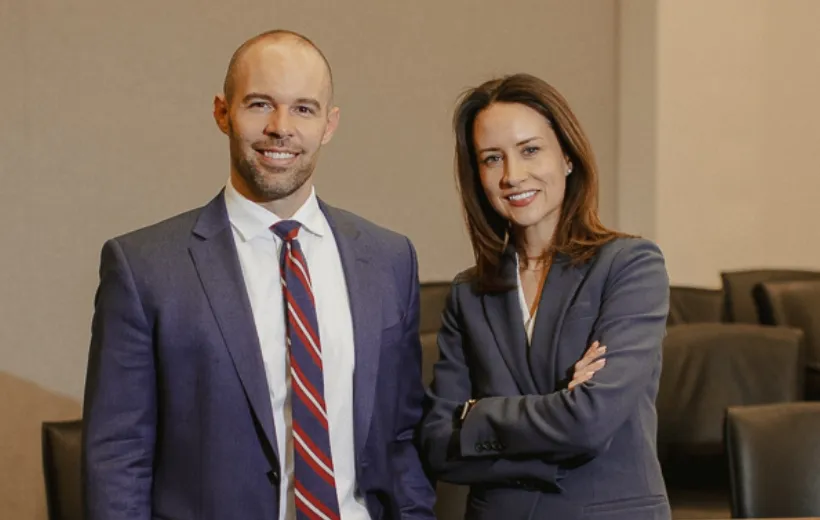In August of 2022, the PACT Act was signed into law. One of the measures included in the new law is the Camp Lejeune Justice Act. From 1953 to 1987, the drinking water at Marine Corps Base Camp Lejeune was contaminated with several volatile organic compounds (VOCs). In the years since they were discovered in the water supply, these compounds have been linked to various cancers, Parkinson’s disease, and other serious health conditions.
Hundreds of thousands of veterans and civilians who lived and worked on the base in Jacksonville, North Carolina, during the time frame mentioned above may have been exposed to the contaminated water. For over 30 years, the United States government neglected to conduct thorough testing of the water supply on the base, putting service members who have sacrificed so much for our country and their families at risk.
If you were stationed at Camp Lejeune for at least 30 days between August 1, 1953, and December 31, 1987, and you were subsequently diagnosed with cancer or another serious medical issue, you could now be entitled to seek compensation.
Contact a St. Louis personal injury lawyer from Drafahl Law Firm to pursue financial compensation for negligence brought on by the U.S. government.
Call (314) 300-6260 to schedule a free consultation today.

Awards & Memberships
Water Contamination at Camp Lejeune
The water contamination at Camp Lejeune primarily occurred at two water treatment facilities on the base: the Tarawa Terrace water treatment plant and the Hadnot Point water treatment plant.
The water became contaminated at the Hadnot Point water treatment facility in 1953. The main contaminant found in the water supply at this treatment facility was TCE (trichloroethylene). PCE (tetrachloroethylene), DCE (dichloroethylene), vinyl chloride, and other contaminants were also discovered at the Hadnot Point facility in February 1987, just before the most highly-contaminated wells were shut down. The source of the water contamination at the Hadnot Point facility was determined to be leaking underground fuel storage tanks and waste disposal sites.
The water supply at the Tarawa Terrace water treatment facility became contaminated in 1957. PCE was the primary chemical compound discovered at Tarawa Terrace. The source of the contamination was identified as an off-base dry-cleaning company known as ABC One-Hour Cleaners, which had been improperly disposing of their hazardous waste. PCE is commonly used as a dry-cleaning agent. The chemical seeped into the groundwater and eventually poisoned the wells at the facility. The most highly contaminated wells at Tarawa Terrace were retired in February 1987.
A third water treatment facility, the Holcomb Boulevard water treatment plant, occasionally took on diverted water from the Hadnot Point facility when demand was especially high or repairs were necessary. As a result, residents served by the Holcomb Boulevard facility infrequently received contaminated water as well.
Health Conditions Linked to Contaminated Water at Camp Lejeune
Some of the medical conditions that have been linked to the toxic chemicals found in the water supply at Camp Lejeune include:
- Liver cancer
- Bladder cancer
- Kidney cancer
- Lung cancer
- Breast cancer
- Esophageal cancer
- Non-Hodgkin’s lymphoma
- Leukemia
- Multiple myeloma
- Parkinson’s disease
- Lou Gehrig’s disease (ALS)
- Scleroderma
- Aplastic anemia
- Hepatic steatosis
- Neurobehavioral issues
- Infertility
- Birth defects
- Miscarriage
- Renal toxicity
Before the Camp Lejeune Justice Act was passed, veterans and civilians who were exposed to the contaminated water on the base were prevented from seeking compensation because of a North Carolina law. North Carolina is one of a handful of states that has a statute of repose on polluters, which essentially bars anyone from taking legal action if ten years have passed since an act of pollution or contamination first began. The Camp Lejeune Justice Act removes this legal barrier and allows victims of water contamination at Camp Lejeune to finally have their day in court.
Many of these medical conditions can prove to be fatal over time — if a loved one succumbed to a medical issue due to the water contamination at Camp Lejeune, contact a St. Louis wrongful death attorney today.
Who Qualifies for a Camp Lejeune Lawsuit?
Camp Lejeune water contamination lawsuits will most likely be brought in the Eastern District of North Carolina. The lawsuits will include personal injury lawsuits and wrongful death lawsuits brought by the family members of those who died as a result of the contaminated water at the camp.
Anyone who was diagnosed with an illness or medical condition caused by exposure to the contaminated water at Camp Lejeune could be eligible for a lawsuit if they meet certain conditions. You must have lived on the base for at least 30 days between August 1, 1953, and December 31, 1987. The 30 days do not have to be consecutive. For instance, if you visited family at Camp Lejeune six times during the specified time frame and stayed on the base for five days each time, a total of 30 days, you could be eligible for a lawsuit if you later became ill due to toxic exposure.
Veteran service members, military families, civilian contractors, and others who were present on the base while the water contamination was ongoing could be entitled to recover damages for medical expenses, lost income, pain and suffering, and reduced quality of life, among other losses. Families of individuals who died because of exposure to hazardous water at the camp could pursue compensation for funeral and burial expenses, medical costs incurred by their loved one before death, lost future income, loss of companionship and consortium, and other non-financial losses.
Contact a Camp Lejeune Water Contamination Attorney Today
Even though the Camp Lejeune Justice Act gives victims the opportunity to file a lawsuit and seek financial relief, victims still must prove their case in court to receive compensation. That’s where our Camp Lejeune lawsuit lawyers can help.
At Drafahl Law Firm, we have a history of securing multi-million-dollar settlements and judgments for our injured clients, and we are well-known for our commitment to fighting for people who’ve been seriously harmed. No matter where you’re located, Drafahl Law Firm is ready to discuss your Camp Lejeune case and help you seek justice.
Contact us today online or call (314) 300-6260 to set up a free consultation.







